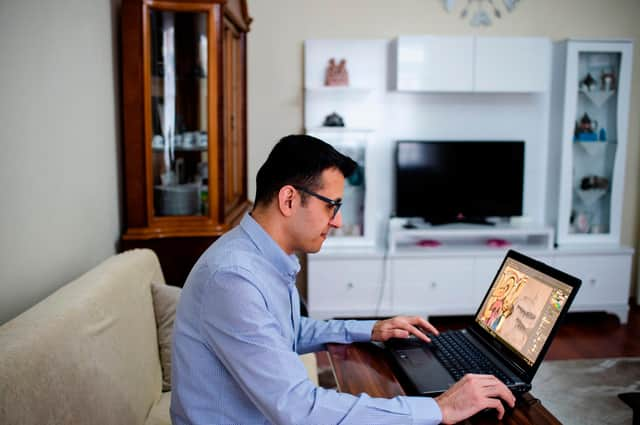Artists should beware the social media trap and think twice about giving away their work for free – Laura Waddell


The phenomenon wasn’t new, and still exists, but when it was there in writing the deal didn’t look so good.
The pattern of exploitation was made visible when posts were shared to communities who could comment on them. Artists hoping for a profile boost would be encouraged to give away work for free, to some entity which could in theory provide an audience which might bolster the artist’s popularity, and eventually their bottom line, somewhere further down the line. In reality, exposure doesn’t pay the bills, and a stream of free labour hurts working standards for artists.
Advertisement
Hide AdAdvertisement
Hide AdAround the same time, guilty consciences about unpaid internships bubbled up, a tangible factor in how prestigious arts jobs skew towards privileged candidates, those whose families could fork out living expenses for six months or longer and with connections (maybe an uncle on the board) to bypass hiring processes.
Over the last ten years, the publishing industry has pretty much stamped out unpaid internships (except at the stretchier edges).
This is a win for working-class job entrants, achieved, in a nutshell, through a combination of campaign groups, growing social media pressure around the issue, industry networks refusing to share unpaid vacancies, big publishing companies eventually cottoning on to bad PR brewing and pivoting to publicising their inclusive entry-level hiring processes instead and, finally, funding bodies (who not so long ago let unpaid internships slide) shifting to an expectation that companies applying for funding must factor in costs to pay staff fairly.
But recently I’ve been thinking about other forms of unpaid labour in the creative industries, and in particular, work that goes into maintaining social media presence.
There’s an anxiousness around it: many feel they have to be there in order to get ahead. Some fall into the trap of getting emotionally invested in the self-promotion side of things.
Some spend hours pumping out content that only social media companies, harvesting data, ultimately profit from. Is the time and effort spent on all this really that much different from giving away creative work in exchange for exposure, hoping opportunities will follow? In fact, isn’t social media presence an even more nebulous form of exposure?
The rewards are difficult to quantify, but sure, sometimes there are returns: visibility, discoverability. When used smartly, social media for arts professionals is as much a networking as a broadcasting tool.
But none of it comes for free. Social media costs us time and effort, and sometimes our peace of mind and contentment too. (All aside from what it’s doing to our democracy).
Advertisement
Hide AdAdvertisement
Hide AdI’m so burned out from a decade on Twitter, and all the abuse and bad faith there, I don’t know if I can stomach going back to it. But when weighing up what I get out of it, I realised how familiar the dilemma was, and thought back to all those conversations about the value of our work.
Exposure generally wasn’t worth it. Social media presence might not be either.
A message from the Editor:
Thank you for reading this article. We're more reliant on your support than ever as the shift in consumer habits brought about by coronavirus impacts our advertisers.
If you haven't already, please consider supporting our trusted, fact-checked journalism by taking out a digital subscription.
Comments
Want to join the conversation? Please or to comment on this article.
